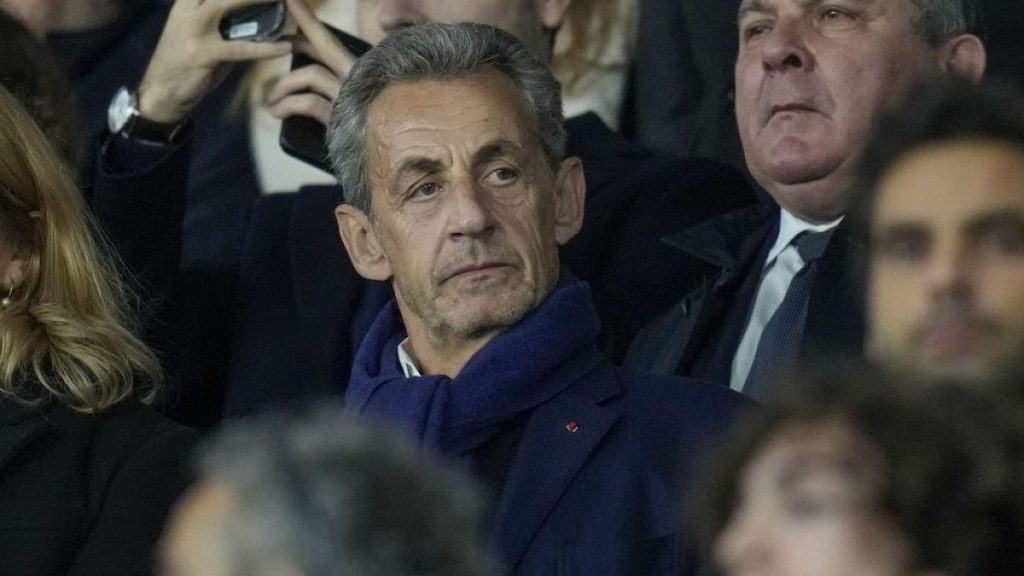Nicolas Sarkozy’s Corruption Conviction Upheld: A Detailed Look at the Case and its Implications
Former French President Nicolas Sarkozy’s legal battles reached a critical juncture on Wednesday as France’s highest court upheld his conviction for corruption and influence peddling. This landmark decision marks the first time in modern French history that a former president has received a custodial sentence for actions committed during their time in office. The ruling, which confirms a previous appeals court decision, sentences Sarkozy to a year in prison. However, given the sentence is two years or less, Sarkozy is expected to request serving his time under house arrest with electronic monitoring. The former president maintains his innocence and plans to appeal the decision at the European Court of Human Rights.
The case revolves around a series of events that unfolded in 2014 during an investigation into the financing of Sarkozy’s 2007 presidential campaign. Investigators discovered that Sarkozy and his lawyer, Thierry Herzog, were using secret mobile phones registered under the alias "Paul Bismuth" to communicate. Wiretapped conversations from these phones revealed discussions that led prosecutors to suspect Sarkozy and Herzog of attempting to bribe magistrate Gilbert Azibert. The alleged bribe involved offering Azibert a prestigious position in Monaco in exchange for confidential information about a separate legal case involving Sarkozy.
While Azibert never received the promised position and the case Sarkozy sought information about was eventually dropped, prosecutors argued that the mere offer of a bribe constituted corruption under French law, regardless of whether it was ultimately fulfilled. Sarkozy vehemently denies any wrongdoing, asserting that his offer to assist Azibert was purely benevolent and devoid of any corrupt intent. However, the courts have found otherwise, convicting both Sarkozy and Herzog on charges of corruption and influence peddling. Azibert has also been found guilty in the case.
Sarkozy’s lawyer, Patrice Spinosi, has confirmed that the former president will comply with the court’s decision regarding electronic monitoring. However, he also announced Sarkozy’s intention to appeal the conviction at the European Court of Human Rights, arguing that the ruling violates his fundamental rights. Sarkozy himself took to social media platform X (formerly Twitter) to reiterate his innocence and express concern that the challenge at the European court may result in a condemnation against France.
This conviction marks a significant development in Sarkozy’s ongoing legal troubles. Despite retiring from public life in 2017, he remains an influential figure within French conservative politics. This case casts a long shadow over his legacy and raises questions about the accountability of high-ranking officials. It also underscores the importance of judicial independence and the pursuit of justice, regardless of an individual’s political stature. The case has captivated the French public and ignited debate about the ethics of political leaders and the effectiveness of the legal system in holding them accountable.
The comparison to Sarkozy’s predecessor, Jacques Chirac, is unavoidable. Chirac, also a conservative figure, was convicted of corruption in 2011 for misuse of public funds during his tenure as mayor of Paris. He received a two-year suspended sentence, making Sarkozy the first French president in modern history to face actual imprisonment for offenses committed while in office. While both cases involve allegations of corruption within the highest echelons of French politics, they differ in the nature of the offenses and the severity of the sentences. Chirac’s case involved misuse of public funds, while Sarkozy’s centers on influence peddling and attempted bribery. The fact that Sarkozy faces actual imprisonment, even if served under house arrest, distinguishes his case from Chirac’s and underscores the seriousness of the charges against him.
Looking ahead, Sarkozy’s legal challenges are far from over. He is scheduled to face another trial next month in a separate case involving allegations of accepting millions of dollars from the late Libyan dictator Muammar Gaddafi to illegally finance his 2007 presidential campaign. This upcoming trial adds another layer of complexity to Sarkozy’s legal woes and could further tarnish his reputation. The outcome of this trial will undoubtedly have significant implications for Sarkozy’s future and further fuel the ongoing discourse about corruption and accountability within French politics. The French public will be closely watching these developments as the legal drama surrounding the former president continues to unfold.














